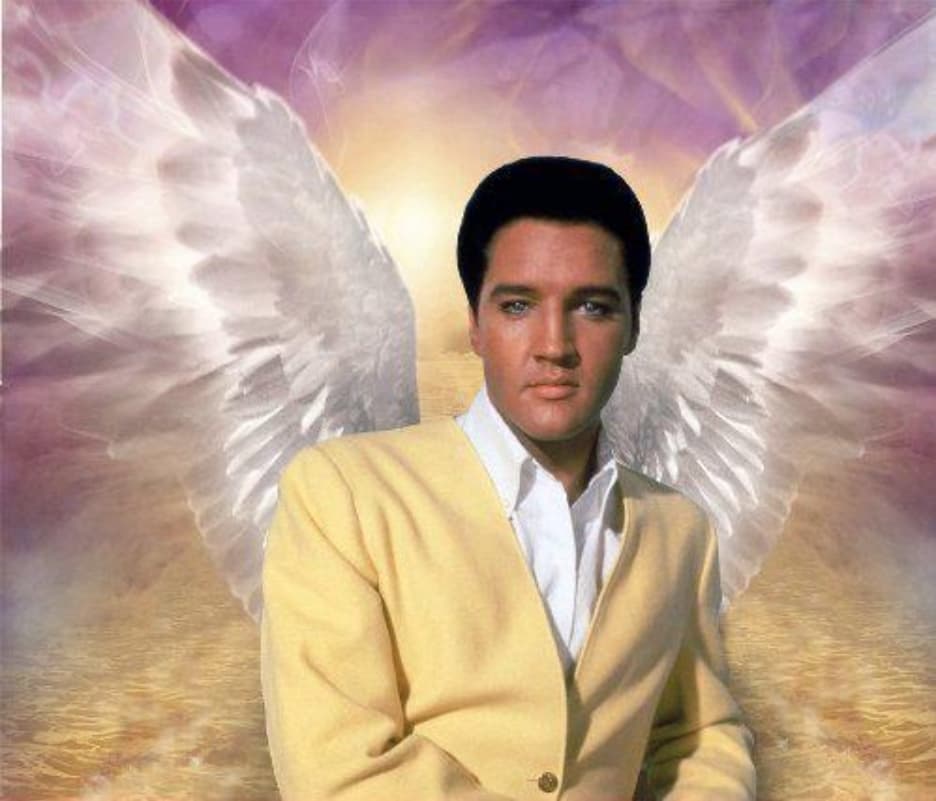
Unchained Melodies and the King’s Final Encore
It was a hot, humid night in Omaha, Nebraska, in June of 1977. The air was thick with expectation and a certain kind of sadness, a palpable feeling that something was coming to an end. It was there, on the stage of the Civic Auditorium, that Elvis Presley gave one of the most raw and heart-wrenching performances of his career. He was a long way from the boy who shook his hips and stole the hearts of millions. This man, a shadow of the swaggering king, was weary and struggling, yet he still possessed that undeniable power to captivate. It was during this tour, captured for the TV special Elvis In Concert, that he delivered his final, fragile gift to the world: his version of “Unchained Melody.”
Elvis’s recording of the song, released on his last album, Moody Blue, a month before his death, was a poignant testament to the turmoil of his final years. It was a live recording, stripped bare of studio polish, featuring only Elvis’s voice and his own piano accompaniment. The song peaked at a modest No. 6 on the Billboard Hot Country Singles chart, but its true legacy isn’t measured in chart positions. The live rendition, from a concert just weeks before his passing, became an iconic, if painful, a glimpse into the man behind the myth. The performance is not perfect, his voice cracking and straining at times, but it is precisely that imperfection that makes it so beautiful and so human. It’s a man baring his soul, filled with a deep, consuming sense of longing.
“Unchained Melody” itself has a long and storied history, predating Elvis’s rendition by more than two decades. Originally a theme for a 1955 prison film called Unchained, the song was composed by Alex North with lyrics by Hy Zaret. It’s an ironic title, as the word “unchained” never appears in the lyrics. Instead, it’s a lament from a lover separated from their “darling,” hungering for their touch and their embrace, with time moving “so slowly” in their lonely absence. The song became a massive hit in 1955 with multiple versions topping the charts, most notably by Les Baxter, Al Hibbler, and Jimmy Young. However, it was the 1965 version by the Righteous Brothers that cemented its place in music history, with Bobby Hatfield’s soaring tenor making it an anthem of a love so powerful it transcends physical distance.
And that’s where the heart of Elvis’s version lies. It’s not just a cover; it’s an emotional echo of his own life. The longing for connection, the loneliness in the midst of a crowd, the yearning for a love that felt just out of reach—it all came pouring out in that final performance. For those of us who grew up with Elvis as the larger-than-life figure, the King of rock and roll, this rendition hits differently. It’s a reminder that even a legend can feel lost, that fame can’t fill the void of a broken heart. The song, in his hands, becomes a conversation with his past, his present, and perhaps, his future. It’s a moment of vulnerability, a powerful final plea from a man who had everything, but perhaps, in the end, nothing at all. He poured his whole self into those notes, and in doing so, created a definitive, unforgettable moment in the history of popular music.